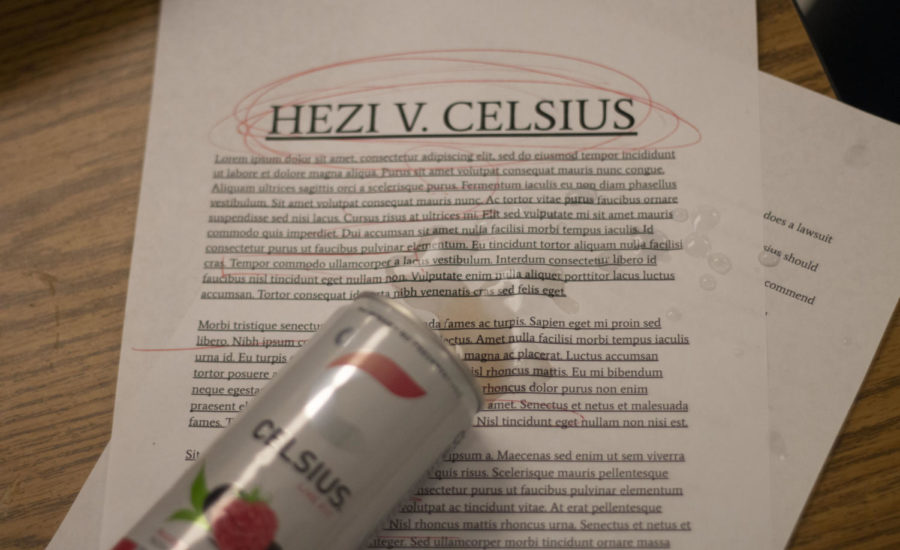The impact of the Celsius lawsuit
Certified Public Accountant Amit Hezi sued Celsius for $7,800,000 for a violation of state consumer protection laws last November. The final court hearing is March 31.
Students who have purchased Celsius Energy drinks can apply for $250 up until Feb. 13 as part of a class action lawsuit settlement claiming the brand violated state consumer protection laws. Certified Public Accountant Amit Hezi sued Celsius for $7,800,000 last November, claiming the drink, which advertises “no preservatives,” uses citric acid as a preservative. The beverage company claims the acid is used for flavoring. The final court hearing will be March 31.
The lawsuit separates different views on the drink, with some people opting to continue drinking the beverage, as well as some consumers making the decision to stop drinking the energy drink.
“If it gives me energy and it makes me feel happy, I will drink it,” sophomore Britton Moore said.
Sports marketing manager at Fly Premier Partnerships Sarah Musa said that because citric acid was listed on the ingredient list, it was up to the consumer to determine whether or not they wish to purchase the drink.
“Technically, if you think about [the lawsuit] in that way, the ingredients are listed, [and] they aren’t lying about it,” Musa said. “It’s just how you perceive it. If a partner like Celsius came and told me this is what you’re hearing, maybe back off showcasing your partnership for a while.”
Major sports companies aren’t the only ones affected by the lawsuit; influencers such as Vinnie Hacker and Alisha Marie and athletes such as UFC fighter Dustin Porier work with the brand in different ways, ranging from sponsored photoshoots to giveaways. This sponsored content heightens the exposure of the drink to individuals on social media, including students nationwide.
“It was a little surprising at first because I was like, ‘whoa, what’s going to happen, are they going to cancel Celsius?’” freshman Aaman Aslam said. “[I thought], ‘what am I going to do without it?’”
Released in 2009, Celsius is one of the most common energy drinks on the market, rising to the No. 3 spot for most purchased energy drink in America. The average demographic for the drink is those ranging in age from 25-44 years old, with many people in the 17-25 age range also drinking it. However, like any other energy drink, not all people are fans of the beverage. A common reason is the caffeine amount, as well as the potential health risks, which include hair loss, heart complications, insomnia and anxiety, according to the CDC.
“I was happy [to hear] that people were learning about how bad Celsius is because it’s better for their overall health,” sophomore Auyeh Oufi said. “I do think that the lawsuit helped [influence] more research on Celsius and what [consumers] are taking into their bodies, which is very important.”
While a personal acknowledgement to the brand is suggested by Musa, she doesn’t believe a public statement would be in the brand’s best interest. This is due to the potential manufactured appearance of a formal statement, making it seem ingenuine.
“When brands release statements, a lot of the time they feel artificial anyways, and [it] just feels like they’re covering themselves,” Moore said.
Celsius isn’t the only company that is worried about the reputation it holds. With a lawsuit like this, there is a potential for other companies or people that partner with the brand to be viewed as dishonest.
“[Brands] always side with our partner until told otherwise,” Musa said. “We follow everything by what’s in the contract and what we’ve agreed to terms-wise. Situations like this have occurred in the past and it’s really just [about] making sure our brand isn’t affected by it.”

Senior Saahir Mawani is the design editor, and this is his third year on staff. In his free time, he loves making YouTube videos, going to concerts and...



